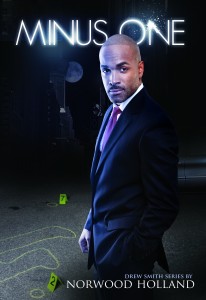Every Writer Needs An Editor: It’s Necessary
January 13, 2012
Rec ently I was asked to review two books in final published format that clearly had not passed under an editor’s eyes. My initial reaction was embarrassment for the author while each may believe in their books–not to say the writing was bad. In fact in both books the writing was quite good, but poor plot and character development, typos, misspelled words, and misplaced commas were huge distractions taking away from the reading experience diminishing the book’s value. Why is it that some authors publish their work without an editor’s assistance? Very few if any published books are error free, but rest assured those that have been properly edited are usually free of obvious errors. This has been the dilemma of self publishing and reason why major newspapers refuse to review self published books regarding them as of poor quality and mere vanity publications. Why some authors skip this necessary step is beyond me, but I offer this advice, if you can’t afford an editor then you can’t afford to publish.
ently I was asked to review two books in final published format that clearly had not passed under an editor’s eyes. My initial reaction was embarrassment for the author while each may believe in their books–not to say the writing was bad. In fact in both books the writing was quite good, but poor plot and character development, typos, misspelled words, and misplaced commas were huge distractions taking away from the reading experience diminishing the book’s value. Why is it that some authors publish their work without an editor’s assistance? Very few if any published books are error free, but rest assured those that have been properly edited are usually free of obvious errors. This has been the dilemma of self publishing and reason why major newspapers refuse to review self published books regarding them as of poor quality and mere vanity publications. Why some authors skip this necessary step is beyond me, but I offer this advice, if you can’t afford an editor then you can’t afford to publish.
With the growth of the internet, self publishing has taken off giving the publishing cartel, the “Big Six”, (Hachette Book Group, Harper Collins, Macmillan, Penguin Group, Random House, and Simon & Schuster) a run for the book buyer’s money. These publishers hire people who do nothing but editing and regard this step as the most important in the publishing process. For good reason, good writing is so much more than just grammar and punctuation. Many authors spend years in apprenticeship mastering the skills. I’ve heard novelists boast of having no formal training and I don’t believe formal training is required but there are certain fundamental rules that must be mastered. Concepts like show don’t tell, point of view, characterization, exposition and dialogue mechanics all have rules which serve a purpose enhancing the reading experience. If you’re a writer and you don’t recognize these terms you better ask somebody. Better yet. study the craft, immerse yourself in your chosen genre. There is a plethora of books and how to sources online and in your local library. Join a writing group and attend writing conferences. You’ll be amazed with what you take away.
I wrote my first book 10 years ago and could have wall papered a room with the rejection letters. It wasn’t easy, but I didn’t give up, and began to study the genre I aspired to publish in, I subscribed to Writers’ Digest and The Writer’s Magazine which would publish one of my articles years later. I studied, I learned, I conquered. Indeed it took time and money, neither of which was prohibitive. I saw it as an investment. I continued to write but hired professional editors who guided me to next level. The rejection letters to my queries didn’t stop but something changed. Publishers began to requests the entire manuscripts rather than first 30 pages. I managed to get more than just a foot in the door but a manuscript on the desk, a benefit of attending pitch conferences. That extra added criticism and guidance helped my work shine, and you want your work to shine and to improve your chances its necessary to invest in your writing.
I learned attending writing conferences the value of blogs and social media, and to the aspiring novelist, do yourself a favor and avoid a future of having to make excuses, explanations and playing the blame game. There’s a reason professionals and academia rely on peer review. Don’t destroy your future as a writer before you even begin, invest the time and money. It’s necessary. You’re putting your name out there, and if you want readers to keep coming back give them reason to.




